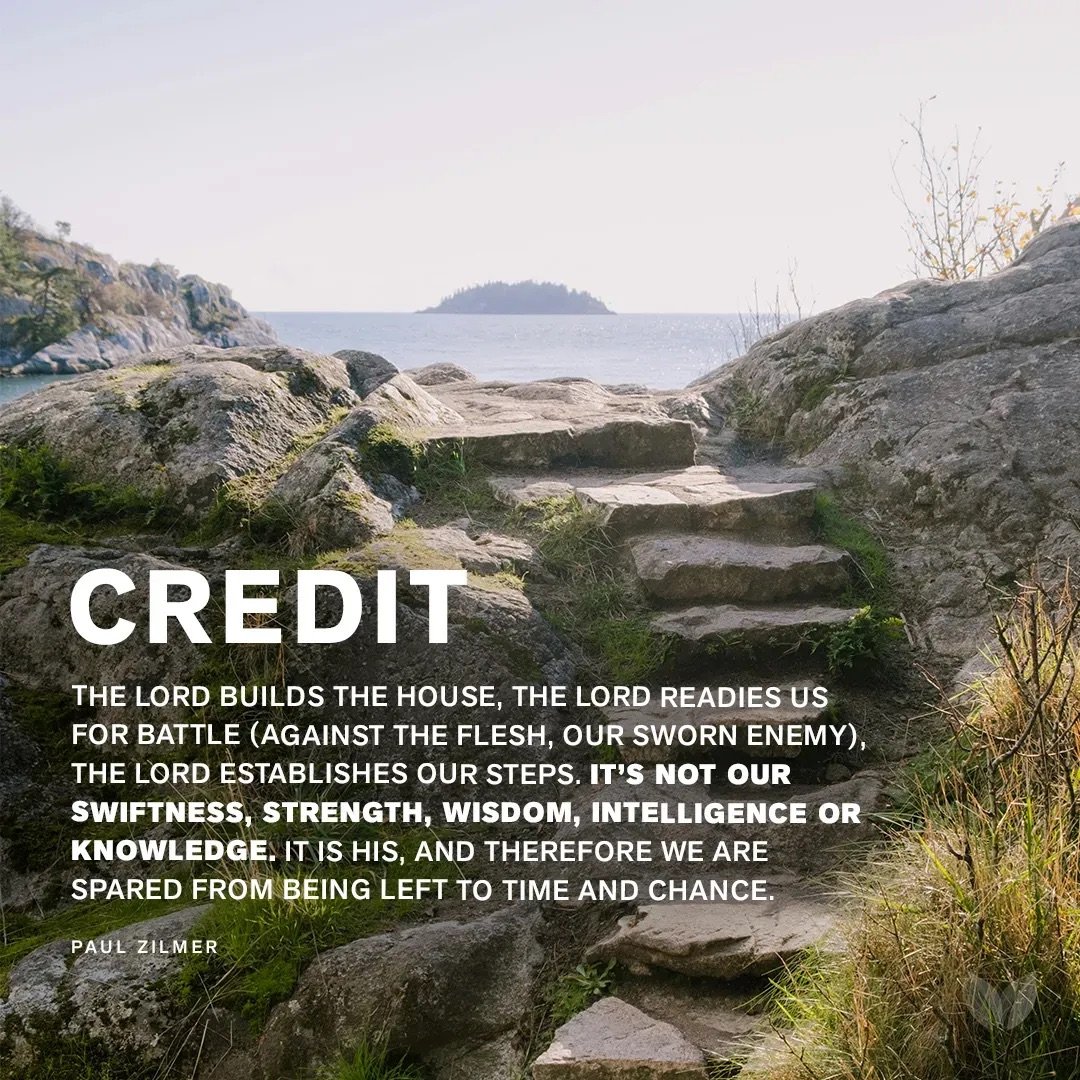Credit
Who gets the credit? Solomon makes this point in multiple places:
Unless the LORD builds the house, those who build it labor in vain. (Psalm 127:1)
The horse is made ready for the day of battle, but the victory belongs to the LORD. (Proverbs 21:31; 19:21 is similar)
The heart of man plans his way, but the LORD establishes his steps. (Proverbs 16:9)
His point isn’t to say that we should exert no effort, or that it’s useless to plan. His point is, it’s the Lord’s guidance and His blessing that produces the outcome. The house does need builders. Preparation is needed for the battle. We do need to plan our way. But in all of these we need to seek to be led and blessed by the Lord. And understand that He is the one, therefore, who deserves the credit.
I think that Solomon is making the same point in a somewhat different way here:
Again I saw that under the sun the race is not to the swift, nor the battle to the strong, nor bread to the wise, nor riches to the intelligent, nor favor to those with knowledge, but time and chance happen to them all. (Ecclesiastes 9:11)
Solomon invites us to look around. Sure, fast runners and strong warriors often win, wise and intelligent people sometimes get rich. But there’s no guarantee, and you’ve seen it happen—upset victories by the underdog, smart people failing. There’s no mention of the Lord here, and I think that’s the key. Without the Lord, we’re at the mercy of “time and chance”—bad timing and/or random events.
So is all the training we do useless? All the effort we expend, all the smarts we were born with, all the knowledge and experience we gain, are they all useless? I don’t believe that’s what he’s saying. What he’s saying is that these things alone— our own effort our and own native ability—don’t accomplish what we want. We need to allow the Lord to guide, we need to seek His blessing.
Accepting Solomon’s counsel changes the whole situation. If we intend to allow the Lord to guide our plans, will we plan something evil? If we ask for the Lord’s blessing, are we going to exert effort in something contrary to His commands? Awareness of the necessity of the Lord’s role tends to make us aim at better goals, exert effort in better actions.
As you know, Solomon himself didn’t do well at following his own advice. He fell in love with his own talents and his own smarts, and ultimately moved far away from allowing God to guide him. If it could happen to him, it can happen to any of us.
We, like Solomon, might start well—seeking the Lord’s wise guidance in our planning, seeking His blessing on our efforts, readily giving Him the credit. When God responds, blessing our plans and our efforts, we, like Solomon, might become proud of what we have accomplished, lured into thinking it was our smarts and our skill that did it. Solomon’s downfall ought to be a powerful lesson. But, you know…we like to take credit.
If we’re actually wise, we will give the credit where it’s due: The Lord builds the house, the Lord readies us for battle (against the flesh, our sworn enemy), the Lord establishes our steps. It’s not our swiftness, strength, wisdom, intelligence or knowledge. It is His, and therefore we are spared from being left to time and chance.
Love, Paul


